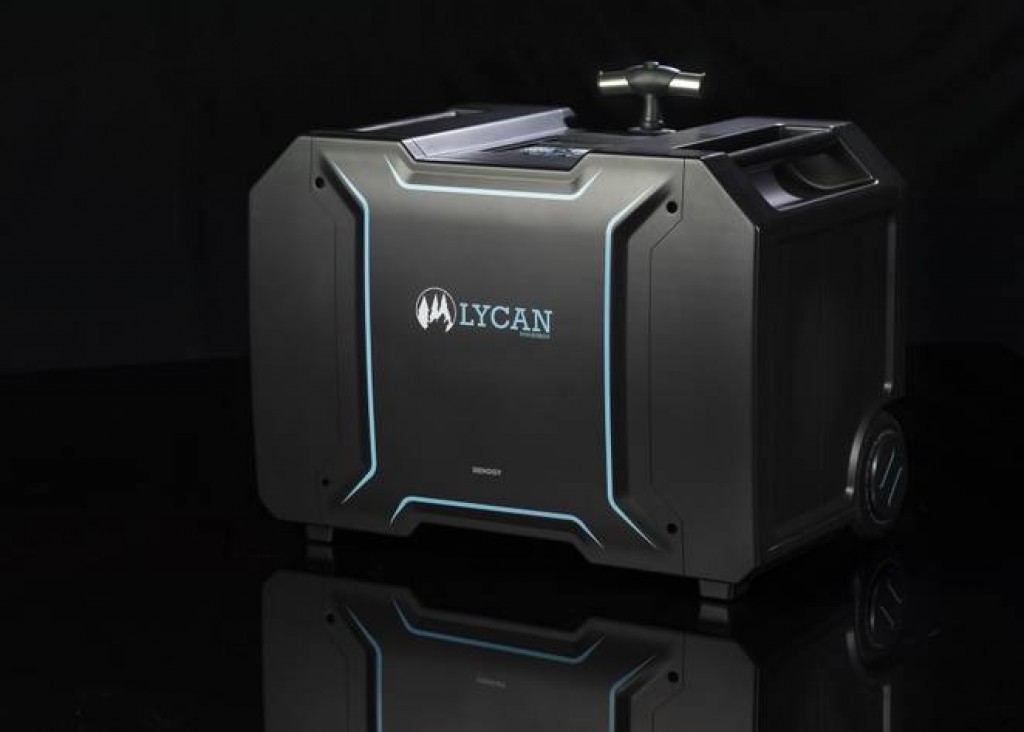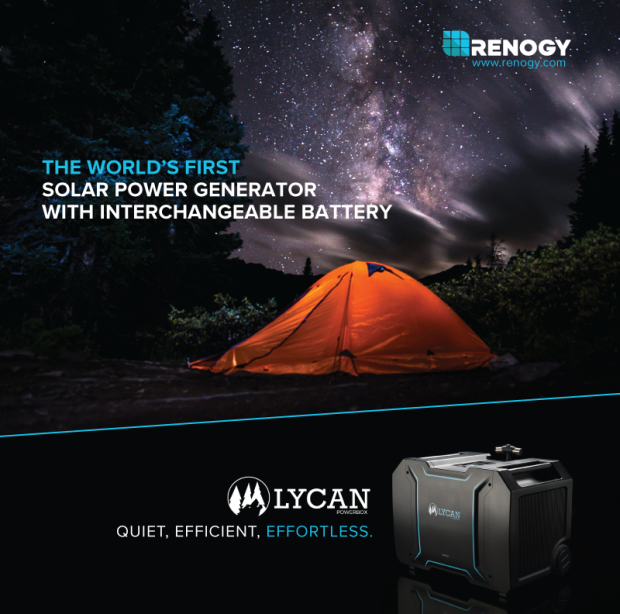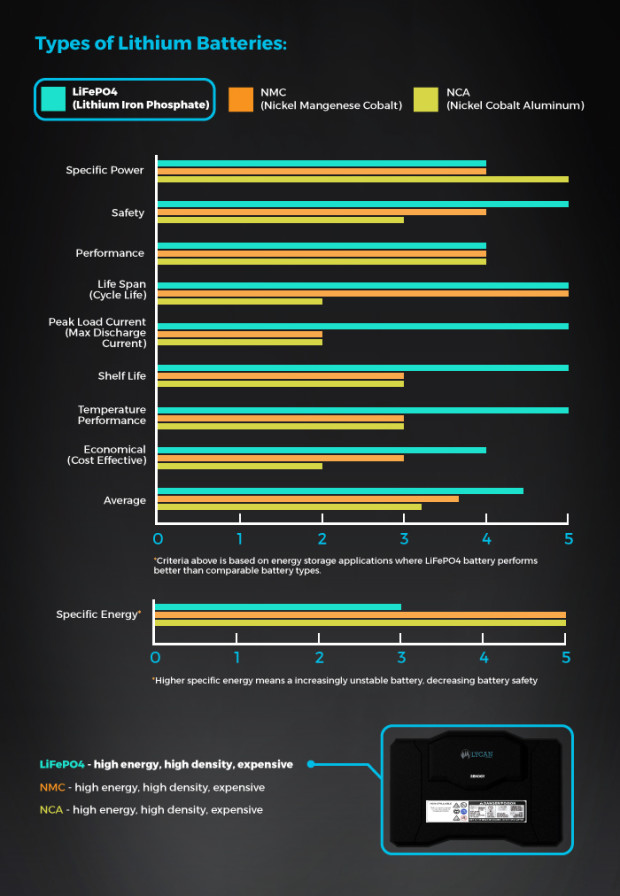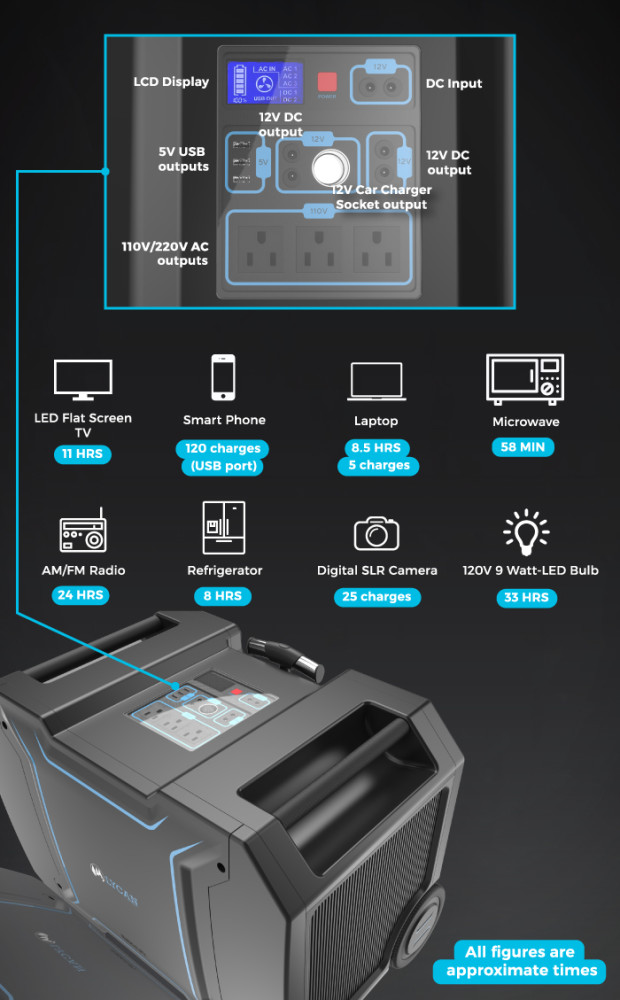RECOMMENDED VIDEOS

ONYX SOLAR : Photovoltaic Glass For Buildings
Onyx Solar Energy S.L.

ET Solar : ET Cell Optimizer Module
ET Solar Energy Corp.

Free Energy from Biomass
Nature's Furnace Inc

Simon Solar Farm at Georgia - 38.6 Mwp Solar Power Plant
Phoenix Solar Sdn Bhd

ECO USBCELL
Pilot Electronics
Related Stories
The largest solar farm apiary in the US opens this week
New study suggests that plastic waste may be transformed into usable energy
Uravu’s zero-electricity Aqua Panels produce gallons of water from thin air
104% of Portugal’s electricity consumption in March came from renewable energy
Germany Sets New Solar Record By Meeting Nearly Half of Country’s Weekend Power Demand
09 May, 2016

The Lycan Powerbox - Your portable power solution
Renewable Energy & Energy Efficiency | UNITED STATES | 09 May, 2016
Published by : Eco Media Asia
The Lycan Powerbox and a few solar panels could be an emergency power source, an off-grid energy hub, or a small step toward cleaner energy at home.
Although there are a huge number of choices on the market these days for portable solar chargers and battery packs, and powering phones and other personal devices with them is becoming quite popular, when it comes to powering larger devices, or being able to plug in a standard household extension cord, many of us would be out of luck. At a certain point, the required devices are so much bigger than the personal versions that the language used to describe them moves from solar charger to solar 'generator,' and these larger systems could be a viable alternative to a gas generator for backup/emergency power or for off-grid use.

There's a new entry into the solar generator market, and aside from the fact that it gets under my skin when companies call a battery storage system a generator, it looks to be a viable competitor in the portable power category. The Lycan Powerbox, from Renogy, aims to "redefine mobile energy" with a number of features not found on similar offerings, including swappable LiFePO4 (lithium-iron-phosphate) batteries, a rugged waterproof case on heavy-duty wheels, and a lighter weight for easier maneuvering.
The Powerbox has a 75Ah capacity battery, which takes about 7.5 hours to fully charge using house current, or about 9 hours with a single 100W solar panel (or a more optimal 3 hour charge time with a set of 3 100W panels). Once charged, users can plug their portable electronics directly into any of the three 5V USB ports, a 12V car charger socket, one of the two other 12V outlets, or one of the three 110V AC (house current) outlets, and have access to plenty of juice, whether for mobile devices or standard home appliances (within limits, obviously).
This is roughly comparable in size and capacity to the Goal Zero Yeti 1250, which is priced at $1599 USD, with the Goal Zero model using a 100Ah lead-acid (AGM) battery (also replaceable), and weighing in at about 103 lbs (46.7 kg). The lead-acid batteries, similar to an auto battery, are meant to be kept full at all times, which means keeping the unit plugged in, even in storage, which can be a drawback in some applications. The Lycan Powerbox, on the other hand, has a 75Ah LiFePO4 battery, with 1/4 less capacity than the Yeti (but spare batteries can also be purchased, and then swapped out for continuous power), and weighs in at just 60 lbs (27.2 kg), with the crowdfunding price for this device set at $1099 (retail price expected to be $1799).

According to the Indiegogo campaign page, the battery in the Powerbox is rated at 2000 cycles, so it has a long life-cycle and long 'shelf life', and when combined with solar panels for charging, the units could serve as a clean and renewable micro-power source at home or in the woods, and truly be a solar generator. It could also be a good choice for a clean 'generator' for job sites and remote areas, where it would be a much simpler and quieter way of accessing electricity where there isn't an outlet in sight.
 Find out more at Renogy.
Find out more at Renogy.
 Find out more at Renogy.
Find out more at Renogy.Article by Derek Markham at treehugger.com
Read more interesting product review at Treehugger.com
